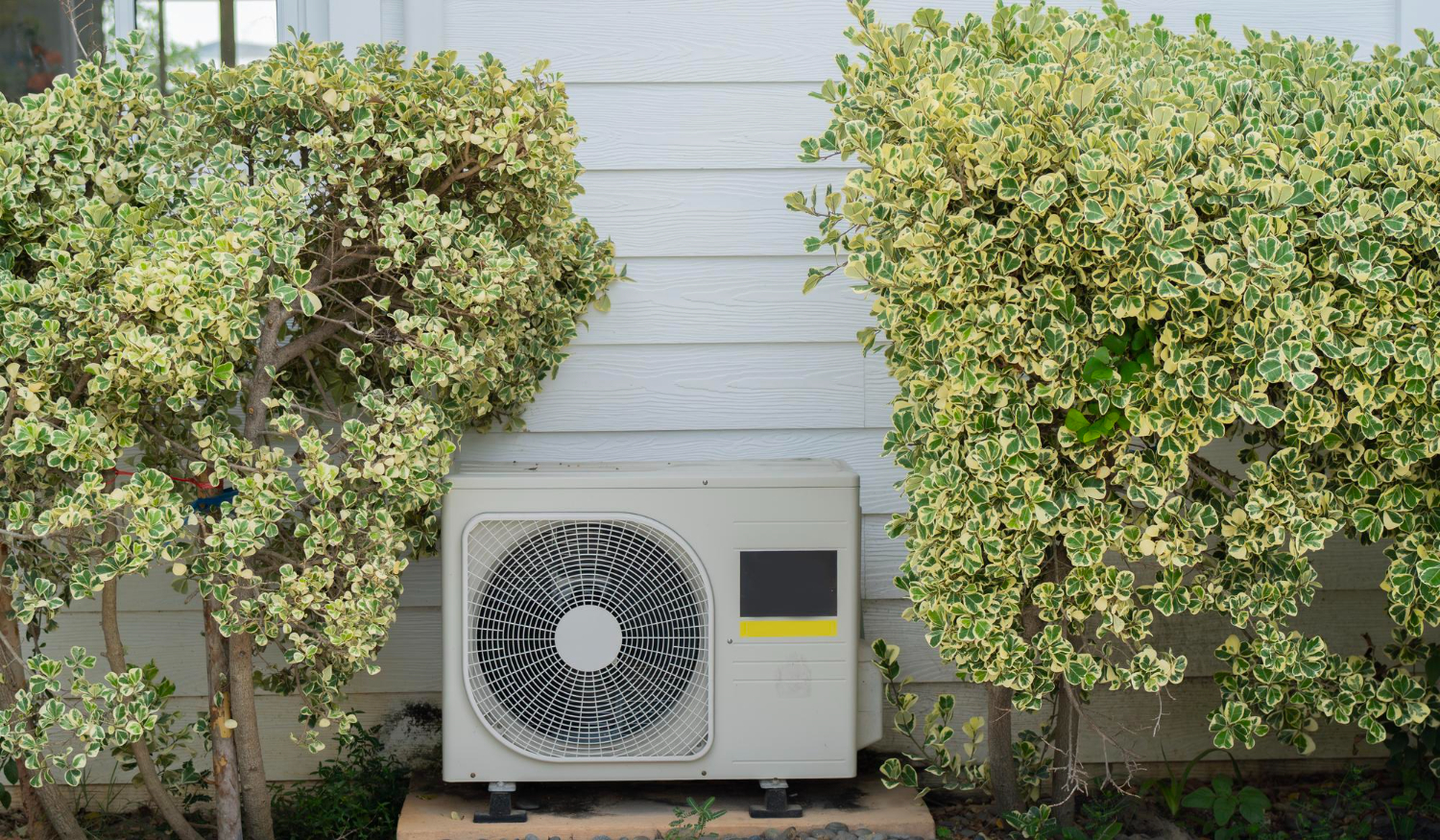Pre-Installation AC Electrical Requirements for Elberfeld Homes
Get expert HVAC insights to improve your home comfort and system performance. Discover practical tips and solutions from experienced professionals. Read to know more.


Before installing a new AC unit in your Elberfeld home, it is important to make sure your electrical system is ready to handle the load. Skipping this step can lead to frequent breaker trips, system malfunctions, and even reduce the lifespan of the unit. Improper electrical prep might not be obvious at first, but it often becomes clear when the AC starts drawing more current than the home can safely supply.
Having your home’s electrical system evaluated and updated, if needed, sets the stage for a smoother AC installation. It also helps homeowners avoid unnecessary costs and future electrical issues. Proper preparation helps the equipment run more efficiently from day one and reduces the risk of performance-related problems down the line. For those scheduling an AC installation in Elberfeld, there are a few key electrical factors that should always be checked before the installation begins.
Understanding Your Home’s Electrical System
Many older homes in Elberfeld were not originally wired to support the energy demands of modern central AC systems. Even ductless or mini-split units need adequate power and safety measures in place before they can operate correctly. Knowing what parts of your electrical setup are involved with how an AC unit runs is the first step in avoiding complications.
Your electrical panel is the heart of your power distribution system. It is where electricity from your utility provider is routed to various circuits throughout the home. Each large appliance, including an AC unit, should ideally be on its own dedicated circuit. If you are planning a new AC installation, your panel needs to have the space and capacity to support it.
Circuit breakers serve to protect your home from electrical overloads or faults. For an AC system to run properly, it has to be protected by a correctly rated breaker. If the amperage is not properly matched, it can create a safety risk or cause frequent tripping. Breakers that trip often are not only annoying but may point to an issue with the system setup.
Homes with outdated or undersized panels may need upgrades before installation begins. For example, if the panel is fully occupied or uses outdated fuse boxes, an upgrade to a modern panel with additional slots may be required. This ensures the new AC unit gets independent, stable power without straining the rest of your home’s electrical use.
Key Electrical Requirements for AC Installation
Once your AC equipment is selected, it is important to check its electrical specifications. Different types of units come with different demands, and your setup should match the unit’s requirements exactly. Not doing so can lead to damage, safety hazards, or system inefficiency.
Here are some basic electrical requirements to consider based on your AC type:
- Central AC units usually need 220-240 volts and a dedicated circuit, often with 30 to 60 amps depending on the size of the system.
- Ductless or mini-split systems also require their own dedicated circuit and often run on 110-240 volts, depending on the number of zones.
- Window units may plug into standard outlets, but higher BTU models often need a dedicated 20-amp outlet.
Besides voltage and amperage needs, each system must have an outdoor disconnect box installed nearby. This allows quick shutoff of power in emergencies or during service. Proper wire gauge also matters. If the wiring is too small, it could overheat and become a safety hazard.
Even newer homes may not be pre-wired with the right capacity or connections for a larger or more advanced AC unit. For example, upgrading from a window unit to a full central AC system usually requires a full evaluation of both interior and exterior electrical readiness.
Making these checks ahead of time helps avoid delays on installation day. It prevents the frustration of failed inspections or unexpected upgrade costs. Whether your home is brand new or decades old, aligning your system’s specs with your unit’s requirements supports better overall performance.
Pre-Installation Electrical Preparations
Before starting any AC installation in Elberfeld, the home’s current electrical setup must be properly reviewed. A system that is not ready can delay the installation or, worse, lead to failures once the unit is in use. Even newer homes can fall short if the electrical demand of the chosen AC system was not part of the original plan.
One of the first steps is checking your electrical panel. If you are adding a new circuit, that panel needs to have enough open spaces to accommodate it. When panels are outdated or at full capacity, adding new circuits without an upgrade can push the system beyond what it can safely handle.
- Inspect the electrical panel for open breaker slots.
- Confirm panel amp rating is enough for the new AC unit.
- Upgrade the panel if it does not meet current load demands.
- Check all wiring along the path to the unit for age, size, and insulation condition.
- Replace any overstressed or corroded wiring.
- Install or verify the outdoor disconnect switch required by code.
- Ensure outlets meet extension or voltage load requirements if installing a window unit.
Old wiring may not be rated for the higher amps that modern units draw. For example, wiring that worked fine for a basic fan or old AC may not meet the standards for current systems with larger compressors or more sophisticated controls. A home built decades ago may need a full wiring evaluation and a partial or complete rewire to safely support a central system.
Skipping these steps can increase the risk of voltage drops or overheated wires, especially when the AC runs for long durations during hot Elberfeld summers. It is always better to identify and correct these problems early instead of dealing with disruptions during peak cooling months.
Safety Considerations and Importance of Hiring Professionals
Improperly installed electrical systems pose more than operational concerns. They are a serious safety issue. Loose wires, incorrect breaker sizes, and overloaded circuits are not just technical errors. These can lead to shorts, fires, and shocks. Installing an AC unit requires working with high-voltage electricity and ensuring all connections follow local electrical codes and building regulations.
Electrical work tied to AC installation is not something to take lightly. It involves knowledge of code compliance, load calculations, grounding, and proper fuse or breaker sizing. Overlooking even small details can result in property damage or injury.
Hiring trained professionals is the best way to avoid those risks. Our technicians know how to assess your current setup, identify gaps, and safely complete any needed upgrades. During each installation, they test for voltage irregularities, grounding issues, loose connections, or undersized components. These steps are key to achieving a long-lasting result.
An example many homeowners do not consider involves shared circuits. We have seen setups where AC units accidentally pull power from shared circuits also serving lighting or outlets. This causes flickering lights, frequent breaker trips, or outlets that become unresponsive. Fixing oversights like these after installation often costs more than doing the setup right from the beginning.
Ensuring a Smooth AC Installation Process
Making sure your Elberfeld home’s electrical system is ready for a new AC installation does not have to feel overwhelming. It starts with properly planning for the AC type you are installing and confirming your system meets its power needs before installation day.
Begin by reviewing your electrical panel and checking for available breaker space. Then, verify that your wiring is the correct size and in safe condition. Do not overlook outdoor requirements like disconnect switches or access to dedicated circuits. Identifying these items early allows time to upgrade or replace anything that does not meet current standards.
Getting the electrical side of the project right lays the foundation for reliable cooling all season long. When your system has the stable power it needs, it can run more efficiently, last longer, and avoid causing disruptions in your home.
If something seems off or you are unsure whether your current system can handle the AC load, it is always best to call in experienced help. Our professionals will make sure your installation goes smoothly from beginning to end.
If you want a smooth project start with your new unit, it helps to review and upgrade your electrical system before proceeding. For expert insights on AC installation in Elberfeld that keep your equipment running safely and efficiently, Perfect Climate Heating & Air has the expertise to guide you every step of the way. For a quick estimate or to book a service visit, please contact us today.
What Our Clients
Say About Us
Our clients consistently praise our dedication and expertise. They appreciate our commitment to meeting their needs and providing sound advice, which has fostered long-lasting relationships.
SERVICE AREAS
We proudly serve clients throughout our surrounding communities, delivering reliable service wherever you need us. No matter the location, our team is committed to the same high-quality results and responsive support.


